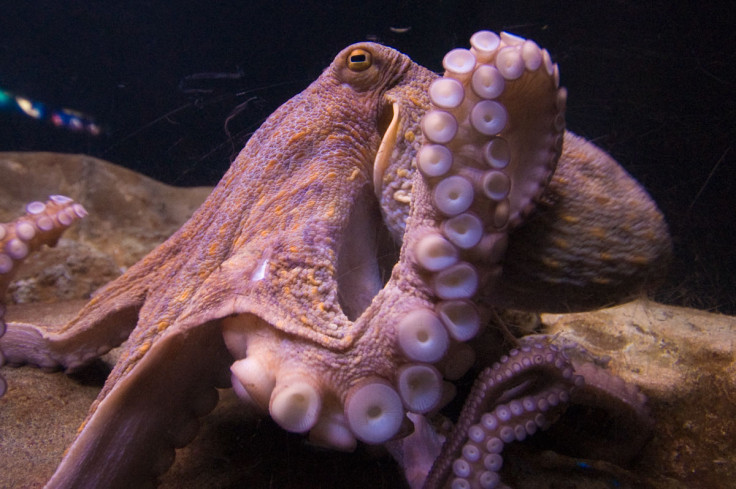How Octopuses Don't Tie Themselves in Knots Mystery Solved

The mystery of how octopuses manage not to get tangled up in their own tentacles has finally been solved.
Published in the journal Current Biology, researchers from the Hebrew University of Jerusalem noted it has long been known that octopuses do not know where their arms are exactly – so how then, they asked, do they not end up tying themselves up in knots?
"We were surprised that nobody before us had noticed this very robust and easy-to-detect phenomena," said researcher Guy Levy. "We were entirely surprised by the brilliant and simple solution of the octopus to this potentially very complicated problem."
Octopuses' arms are covered in suckers that will stick to pretty much anything. However, the octopus does not have accurate knowledge of where there arms are and what they are doing.
Octopus expert Binyamin Hochner said humans know where their limbs are because our rigid skeletons limit the number of possibilities.
"It is hard to envisage similar mechanisms to function in the octopus brain because it's very long and flexible arms have an infinite number of degrees of freedom. Therefore, using such maps would have been tremendously difficult for the octopus, and maybe even impossible."
To answer why octopuses do not end up sticking to themselves, the Hebrew University researchers observed the behaviour of octopuses that had an amputated arm – an arm that remains active for an hour after being separated from the body.
They noticed that the amputated arms never grabbed octopus skin, nor did they grab Petri dishes covered with octopus skin.
Findings showed that a chemical produced by octopus skin temporarily prevents their suckers from sucking, providing a self-avoidance mechanism.
"The results so far show, and for the first time, that the skin of the octopus prevents octopus arms from attaching to each other or to themselves in a reflexive manner," the study said.
"The drastic reduction in the response to the skin crude extract suggests that a specific chemical signal in the skin mediates the inhibition of sucker grabbing."
Researchers also found that octopuses could override this automatic mechanism when they needed to.
The team believe the finding could result in bio-inspired robots or medical equipment such as a flexible surgical manipulator.
Study co-author Nir Nesher said: "This is especially advantageous in unfamiliar environments with many obstacles that can be bypassed only by flexible manipulators, such as the internal human body environment."
© Copyright IBTimes 2025. All rights reserved.






















